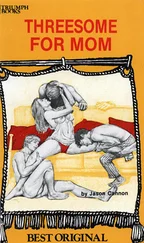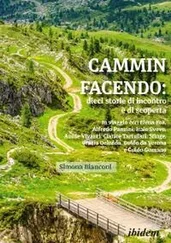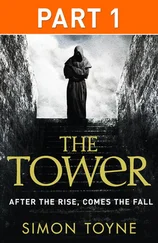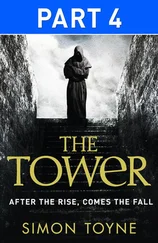Simon Foster - CHINA's Three Gorges & Xi'an
Здесь есть возможность читать онлайн «Simon Foster - CHINA's Three Gorges & Xi'an» весь текст электронной книги совершенно бесплатно (целиком полную версию без сокращений). В некоторых случаях можно слушать аудио, скачать через торрент в формате fb2 и присутствует краткое содержание. Год выпуска: 2010, Издательство: Hunter, Жанр: Старинная литература, на английском языке. Описание произведения, (предисловие) а так же отзывы посетителей доступны на портале библиотеки ЛибКат.
- Название:CHINA's Three Gorges & Xi'an
- Автор:
- Издательство:Hunter
- Жанр:
- Год:2010
- ISBN:нет данных
- Рейтинг книги:4 / 5. Голосов: 1
-
Избранное:Добавить в избранное
- Отзывы:
-
Ваша оценка:
- 80
- 1
- 2
- 3
- 4
- 5
CHINA's Three Gorges & Xi'an: краткое содержание, описание и аннотация
Предлагаем к чтению аннотацию, описание, краткое содержание или предисловие (зависит от того, что написал сам автор книги «CHINA's Three Gorges & Xi'an»). Если вы не нашли необходимую информацию о книге — напишите в комментариях, мы постараемся отыскать её.
CHINA's Three Gorges & Xi'an — читать онлайн бесплатно полную книгу (весь текст) целиком
Ниже представлен текст книги, разбитый по страницам. Система сохранения места последней прочитанной страницы, позволяет с удобством читать онлайн бесплатно книгу «CHINA's Three Gorges & Xi'an», без необходимости каждый раз заново искать на чём Вы остановились. Поставьте закладку, и сможете в любой момент перейти на страницу, на которой закончили чтение.
Интервал:
Закладка:
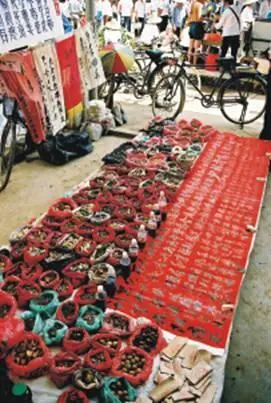
A TCM stall
TCM in Practice
In most Chinese towns you'll find TCM doctors alongside Western practices and most hospitals have TCM wings, indeed some are completely devoted to traditional medicine. But if you don't want to traipse all the way to a hospital just for a massage you'll find TCM and reflexology establishments dotted around the cities (see the Health & Relaxation sections in the individual chapters for listings). Reflexology or massage usually costs between $30 and $60 an hour (or as much as $300 an hour in upmarket hotels or spas) and will make you lighter on your feet for days! If you have a serious aliment that you'd like to try and treat with TCM, it's best to go to an English speaking doctor, or take a translator along with you.
The Downside
In spite of its natural remedies and holistic approach, Chinese traditional medicine has one serious downside for animal-loving Westerners: its beliefs about the medicinal values and use of (sometimes endangered) species body parts – from rhino horn and tiger penis for boosting male virility, to bear bile for improving cardiac condition. Animals are often kept in harsh conditions to render these body parts or fluids, or huge sums are paid for them to be poached from other countries. While animal rights groups are doing their best to substitute equally efficacious alternatives for body parts and there are TCM clinics that don't use such products, demand is still high. Although there are occasional crackdowns, as long as these health benefits are seen to be true and people have the money to pay, the trade will continue. This said, it's easy to avoid such products and, if you have a niggling medical problem that won't go away, give TCM a chance. It might just work; if not, you'll have had a genuine Chinese experience and maybe a massage as well!
Travel & Living Information
Planning Your Trip
When to Go
The two main factors to consider in planning when to visit China are the climateand the number of other visitorsyou'll have to share key attractions with. In terms of the weather, spring, summer and fall are the best times for a visit. While summers are hot and often wet, spring and fall see less rainfall and generally offer the clearest skies. But, in a country as big as China, if you plan to travel to more than one region, you're bound to witness both rain and sunshine, no matter when you come. For more detailed climatic information see Climate .
The tourist seasonfor foreign visitors starts around March or April (with the exception of Hong Kong and Macau, which are mild throughout the winter) and runs until October. If you want to avoid the crowds, you can visit in winter, but be prepared for some bitter temperatures, especially in the north. But, in a country with almost 1½ billion people, the greatest numbers of tourists are, as you might expect, Chinese, so it is their vacation times that you want to avoid (see below).
Holidays & Festivals
China's rich ethnic diversity has given it a whole host of festivals and holidays, some of which are unique to individual areas, while others are celebrated nationally. In the 1990s the government introduced so-called "Golden Weeks” to help develop the tourist industry and these week-long national holidays ( Chinese New Year, Labor Day and National Day) see China's emerging middle classes all taking a break in the same time period. Transport services are booked beyond capacity, hotels are bursting at the seams and everyone inflates their prices. Traveling during these periods, you'll truly come to grips with the fact that China is the most populous nation on earth, and these weeks have become so troublesome that, in recent years, some Chinese families have elected to stay at home and relax, although you'd never guess that when you see the number of people visiting tourist sights.
In addition to the holidays and festivals listed below, there are also countless regional celebrations and (see individual chapters for details) and Western celebrations such as Christmas and New Year are becoming increasingly popular.
Chinese New Year(Spring Festival; Jan/Feb) – The start of the Lunar New Year is the most important of all Chinese festivals and falls between January 21st and February 20th. It will fall on February 7th in 2008 and January 26th in 2009. Each year one of the 12 zodiac animals is ushered in (see The Chinese Zodiac for more) and the whole nation (and Chinese world) celebrates the week-long holiday – it's a time when people return to their hometowns to be with their families. In preparation for the holiday, it's customary to give a thorough "spring-cleaning” to the house and buy new clothes for the coming year. On New Year's Eve the whole family sits down to enjoy a feast. Among a host of dishes, fish usually takes pride of place, symbolic of abundance and prosperity. Fruits, especially oranges are seen to represent regeneration, and these are often eaten after the meal. Red is an auspicious color in China and after the meal children are given red envelopes ( hong bao ) containing money. The money is usually given in amounts that feature the numbers one, six and eight, which are lucky. People also put red banners on their doors to welcome in the New Year and there are public celebrations, often involving lion dances, pounding drums and spirit-scaring firecrackers.
Lantern Festival(Feb/March) – This festival marks the end of the New Year's celebrations and is held on the first full moon of the year. Lanterns are made from paper and silk and are hung outside homes and along the streets, which makes for a magical atmosphere. Lanterns were traditionally red or yellow and of a conventional shape, but today in the cities you can see all manner of creations – from monkeys to spacecraft! During the festival glutinous rice dumplings stuffed with sweet fillings are a popular snack.
Tomb Sweeping Day(Qingming Festival; April) – Ancestor worship is still popular in China and the Qingming Festival is a day put aside for cleaning family graves. In the countryside, tombs are swept, cleaned and often decorated. However, in urban areas it is law to cremate the dead, so tomb sweeping is a less common practice, although ancestors are still commemorated. The festival usually falls on April 4th or 5th.
Labor Day(May 1st) – The start of another of China's three golden weeks.
Youth Day(May 4th) – Youth Day commemorates the 1919 student demonstrations in Tian'anmen Square, which led to the May Fourth Movement.
Children's Day(June 4th) – Kids go on field trips around the country, so beware if you're heading to a major sight!
Dragon Boat Festival(June/July) – This is one of the most spectacular of Chinese festivals, involving teams across the country racing boats adorned as dragons, spurred on by the steady sound of an onboard drummer. The festival commemorates the suicide of the poet Qu Yuan, and the boats are re-enacting the unsuccessful chase to try and save him. Bamboo-wrapped glutinous rice parcels ( zongzi ) are the food to eat during the festival. The festival takes place on the fifth day of the fifth lunar month and races can be seen on rivers around the country.
Ghost Month(Aug/Sept) – This is the time when ghosts return to earth and is regarded as an inauspicious time to travel, particularly on water. Unless you're afraid of ghosts this should make it a good time to visit China, but you'll find that plenty of Chinese don't seem too scared either!
Читать дальшеИнтервал:
Закладка:
Похожие книги на «CHINA's Three Gorges & Xi'an»
Представляем Вашему вниманию похожие книги на «CHINA's Three Gorges & Xi'an» списком для выбора. Мы отобрали схожую по названию и смыслу литературу в надежде предоставить читателям больше вариантов отыскать новые, интересные, ещё непрочитанные произведения.
Обсуждение, отзывы о книге «CHINA's Three Gorges & Xi'an» и просто собственные мнения читателей. Оставьте ваши комментарии, напишите, что Вы думаете о произведении, его смысле или главных героях. Укажите что конкретно понравилось, а что нет, и почему Вы так считаете.



